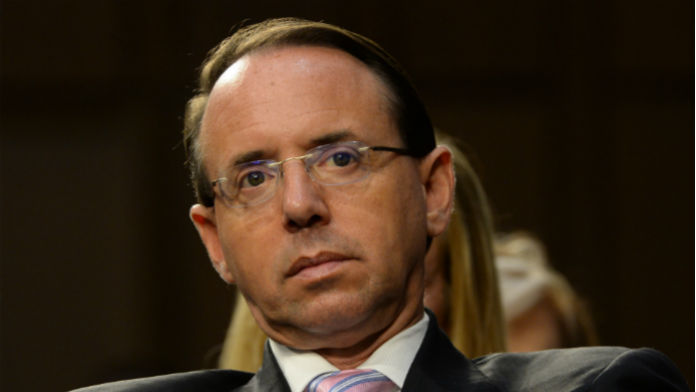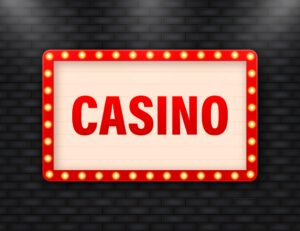Fact Check: What Happens in US with New Wire Act Opinion?

Must be 21+ to participate (18+ in KY). Gambling problem? Call 1-800-GAMBLER (CO, IL, IA, KY, KS, LA, MD, MO, NC, NJ, OH, PA, TN, VA). Call 1-800-NEXT-STEP (AZ). Call 1-800-9-WITH-IT (IN). CALL 1-877-770-STOP (LA). Must be present in LA (select parishes). Licensee partner Amelia Belle Casino. Minimum $10 deposit required. Minimum odds -500 or greater. Bonus Bets wager excluded from returns. New customers only. T&Cs, time limits and exclusions apply.
Lawmakers, gambling stakeholders and millions of players learned earlier this week that the U.S. Department of Justice had revised it opinion on the Federal Wire Act of 1961. The tedious legal ruling on an arcane piece of legislation set the internet abuzz with doomsday cries about the sudden, calamitous end of online gaming.
On Good Friday -- the original Good Friday -- the sky went dark in daytime. It's been overcast and raining here in the desert for nearly a full day now -- pretty much since that Wire Act decision.
— Patrick Everson (@Covers_Vegas) January 15, 2019
That’s not quite the reality.
The ruling only applies to gambling that crosses state lines. It hasn’t come into effect yet – and it might not have any impact at all.
But just that threat in itself could cripple the market.
Is Online Betting Now Illegal?
No. That’s the simple answer. Despite some misleading and alarmist stories, the operator of a legal online poker site or casino is not about to be hauled off to jail.
But online gaming that includes any transmission of information or money across state lines could eventually be illegal. That has the potential to end online gaming, at least as we’ve come to know it now.
What Actually Happened?
Last year, lawyers from the government set to resolve some of the interpretations of the Federal Wire Act of 1961, a bill passed during the Kennedy Administration used to combat organized crime. Though concocted decades before the average American could access the internet, it was nevertheless used to ban online gambling.
That was until 2011, when Justice Department officials revised the long-standing interpretation of the Wire Act and instead declared it no longer applied to online gambling entities like poker, the lottery or casinos (tough it still explicitly banned sports betting, which had been specifically mentioned in the original law).
The new opinion reverses that, and says the Wire Act does apply to all forms of online gaming. It’s important to note the new opinion doesn’t carry the weight of law, but does state current interpretations of existing law.
That means if law enforcement agencies seek to enforce the more rigid interpretation, it could lead them to go after online gaming purveyors and bring about the scary scenario gaming stakeholders feared.
Again, for many reasons, this scenario is still far from a certainty.
What Are the Biggest Threats to Online Gaming?
For now, it’s the intangible uncertainty with the ruling, starting with the actual opinion itself. Gaming lawyers have blasted the writing behind the opinion, and have not reached consensus about what it actually sets about doing.
As the industry awaits further clarification, it has become increasingly nervous about a worst-case scenario.
Gambling stock fell after the opinion was released. More than two-dozen state legislatures considering gaming expansion bills may now tread more carefully – or not at all.
Existing online gaming markets, most notably in New Jersey, Nevada, West Virginia, Pennsylvania and Delaware are also cautiously awaiting what, if any, impact the federal ruling may have.
A less direct, but perhaps more significant, impact may be on the payment intuitions that serve online gaming. Fearing the government may one day ban online gaming, or prosecute financial entities that service them, they may preemptively sever all ties with gambling companies to avoid risk.
No way to process money means no way to host the games. That move could indirectly end the market without any enforcement efforts from the government.
Is it Politically Motivated?
It depends on who you ask, but many in the gaming industry media, as well as stakeholders and even lawmakers, didn’t hold back accusing the Justice Department of succumbing to outside influences.
Michigan still moving full steam ahead with online casino bill, despite the politically-motivated Wire Act memo.https://t.co/PohxsebiX7
— Brian Pempus (@brianpempus) January 16, 2019
Much of that anger centers around billionaire Las Vegas Sands CEO Sheldon Adelson, who hasn’t hidden his disdain for all forms of online gaming. He has financed the Coalition to Stop Internet Gambling, which true to its name, works to stop web-based gaming in all forms.
It typically does this through emotional appeals, sometimes including images of gambling-addicted children. On social media, it celebrated the DOJ opinion - along with an image of Big Bird holding cash (and a strong hand of playing cards).
.@JonBruning's piece, which provides a thorough overview of the Wire Act and the 2011 OLC Opinion's erroneous interpretation of it, also highlights how NJ's licensed online operators have been caught copying the worst schemes of their overseas counterparts https://t.co/M0e4SpWolX
— Coalition To Stop Internet Gambling (@StopNetGambling) January 16, 2019
Adelson has also contributed millions of dollars to the campaigns of politicians that help his crusade, most notably South Carolina Sen. Lindsey Graham. The chair of Senate Judiciary Committee has taken up the fight against online gaming in Congress, perhaps not coincidently, ever since he became one of Adelson’s most richly compensated beneficiaries.
Graham repeatedly urged the DOJ to revise the 2011 ruling and asked former Attorney General Jeff Sessions to do the same. The revised opinion is, interesting enough, dated just a few days before Sessions was fired from his position.
Not surprisingly, the DOJ has denied all outside political influence in this case and all others, but for many detractors, it hasn’t taken much dot connecting to figure out why, and when, this opinion came down.
What happens next?
Let’s start with what we do know.
A new attorney general is set to take over the Justice Department and will have broad leeway to determine how, or if, he or she wants to go about enforcing the new opinion on the Wire Act. Current Attorney General nominee William Barr is undergoing confirmation hearings this week and if confirmed by the Senate, it remains to be seen how he’ll act (his stance on gambling is not a huge priority for Congress, especially in the current political climate).
Meanwhile Deputy Attorney General Rod Rosenstein (who himself will leave his role in the Justice Department in the coming months) asked that no action be taken for 90 days to allow potentially affected parties time to come into compliance. (No one is quite sure what “compliance” looks like, which further complicates matters).
In the meantime, the potentially affected parties are lawyering up in case the DOJ begins trying to shut them or their partners down. Multiple lawsuits will surely be filed, and possibly years of legal challenges are sure to follow.
While battles will be fought in courtrooms, another more arduous battle will likely be waged in the halls of Congress: many of the same lawmakers that decried the ruling have already promised action on Capitol Hill.
Actually passing legislation could be a whole different story. Getting anything done in Congress, particularly during the current partial government shutdown, is not an easy endeavor.
What Will happen?
Few legal analysts can even agree on what the opinion means, so it’s almost impossible to guess what actually will happen.
Much depends on enforcement. Though the DOJ may take an ideological opposition to online gaming, it may not do anything to fulfill that. As with marijuana, it could technically be against Justice Department policy but the organization and its enforcement agencies may take no steps to do so.
Should officials crack down on online gaming purveyors, they would then undoubtedly redouble efforts from some members of Congress to push for laws that would change the DOJ policy.
In a best-case scenario, this could compel lawmakers, especially those from states that see positive tax revenues from legal gambling, to form smart, coherent policy that addresses these questions and provides guidance for a safe, regulated gaming network to thrive.
That, sadly, is just one of many distant possibilities in a quagmire that will have no easy ways out for the foreseeable future.
About the Author

Ryan Butler has spent more than 10 years covering sports, governments and the intersection between the two.

 Do Betting Sites and Casinos Accept Credit Cards UK January 2026?
Do Betting Sites and Casinos Accept Credit Cards UK January 2026?  Best Crazy Time Casino Sites January 2026 - Play Crazy Time Slot Game Online UK
Best Crazy Time Casino Sites January 2026 - Play Crazy Time Slot Game Online UK  Love Island All Stars Betting Odds 2026 - Millie, Ciaran Favourites In Early Days
Love Island All Stars Betting Odds 2026 - Millie, Ciaran Favourites In Early Days  2026 Royal Rumble Betting Odds, Free Bets and Predictions
2026 Royal Rumble Betting Odds, Free Bets and Predictions  Big Bash League 2025/26 Betting Odds, Tips - Who Will Take Home The BBL Trophy This Year?
Big Bash League 2025/26 Betting Odds, Tips - Who Will Take Home The BBL Trophy This Year?  Today's Horse Racing Betting Tips - Expert Horse Racing Picks For Thursday 22nd January
Today's Horse Racing Betting Tips - Expert Horse Racing Picks For Thursday 22nd January
Comments